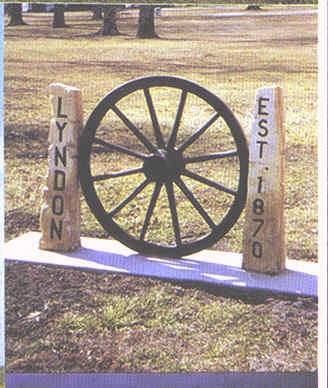
One hundred and thirty years ago in 1870, Wells P. Bailey built this two-story log house of native walnut trees. The logs were hand hewn with some as much as 20 inches in diameter.
When the Indians were removed to Oklahoma in 1868, the area immediately was opened for settlement. Among those adventurers was Mr. Bailey, enticed to come to Osage County by his cousin, Judge Lawrence D. Bailey, who assisted in establishing Lyndon. Wells was born in Sodes, New York in 1827 and migrated to Iowa and Illinois before coming to Lyndon. He was a machinist, millwright and farmer most of his life. He and his wife, Julia, are buried at the Lyndon Cemetery.
The historic house was a timely acquisition by the Historical Preservation Partnership of Lyndon (formed in the initial stages after the discovery of the Bailey house) when a local teacher was inquiring whether there was a log cabin in the area. She was told there was one east of town and at first glance it appeared to be a two-story clapboard house, but upon closer examination one corner of the siding had been pulled away to expose the walnut logs and chinking.
The excitement at finding the log cabin was enhanced when the owners said they would give it to the city, and the timing was so fortunate because the owners were moving out of state the next day!
Along with the log house, the HPPL group will add to the park area a mini village - a reproduction of the first businesses in Lyndon when it was first established. Included will be a general store; a barber shop, a blacksmith shop and perhaps other buildings to enhance the village.